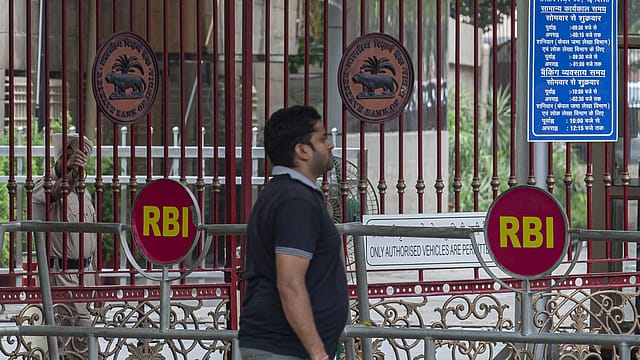PSU banks end in red after RBI proposes tighter project finance rules; SBI, PNB, BoB fall up to 6%
ADVERTISEMENT

Shares of public sector banks witnessed sharp selling pressure on Monday, with index heavyweights State Bank of India (SBI), Bank of Baroda, PNB, and Canara Bank falling up to 6% after the Reserve Bank of India (RBI) released a draft proposing tighter project finance norms. Meanwhile, the benchmark indices ended flat, with the BSE Sensex settling 0.02% higher, whereas NSE Nifty ended 0.15% lower.
The RBI on May 3 released the draft direction on the prudential framework applicable to financing of project loans. Citing the complexities involved in project finance, the central bank has revised guidelines to provide an enabling framework for the regulated entities for financing project loans, while addressing the underlying risks.
The central bank has proposed that lenders should set aside 5% general provisions for all existing and fresh project loans, which are in the "construction phase", and also asked them to ensure strict monitoring of any emerging stress. These new set of guidelines have been proposed for both banks as well as non-bank lenders.
With these guidelines, the RBI has significantly enhanced the provisioning requirement during the construction phase of a project from the extant 0.4% (0.75% for CRE- residential housing projects, 1% for non-residential housing CRE) to 5.0%, for all existing and fresh exposures. However, no change has been proposed in the provisioning requirement for non-performing assets (NPAs).
Reacting to the news, the Nifty PSU Bank Index ended 3.66% lower at 7,252 levels, with all sectoral indices ending in negative terrain. Punjab National Bank (PNB) was the worst performer among PSU banks with a 6.41% drop, followed by Canara Bank, which ended 5.38% lower.
Shares of State Bank of India (SBI), the country’s largest commercial lender, closed down 2.64%, while Bank of Baroda shares slipped 4.04%.
Among others, Indian Overseas Bank, Bank of India, Indian Bank, UCO Bank, Bank of Maharashtra, Central Bank of India, and Union Bank of India fell in the range of 1.3% to 3.4%.
The state-owned power sector financing companies Rural Electrification Corp. (REC), IREDA, and Power Finance Corp. (PFC) also saw sharp selling. The share price of REC ended 7.5% lower, while PFC and IREDA declined 9% and 4%, respectively.
Domestic brokerage JM Financial believes that this is a significant increase in provisioning requirement and will result in lower returns for lenders in project finance and reduce incremental appetite for such exposures, if implemented in current form.
“While this is prudent from a risk management perspective, coming from the regulator’s experience in the last credit cycle, we believe this can be detrimental to growth in the capital intensive infrastructure sectors in the economy,” it says. The brokerage estimated that the additional credit costs, if they were issued in current form, will be in the range of 12- 21 bps for public sector banks.
(DISCLAIMER: The views and opinions expressed by investment experts on fortuneindia.com are either their own or of their organisations, but not necessarily that of fortuneindia.com and its editorial team. Readers are advised to consult certified experts before taking investment decisions.)